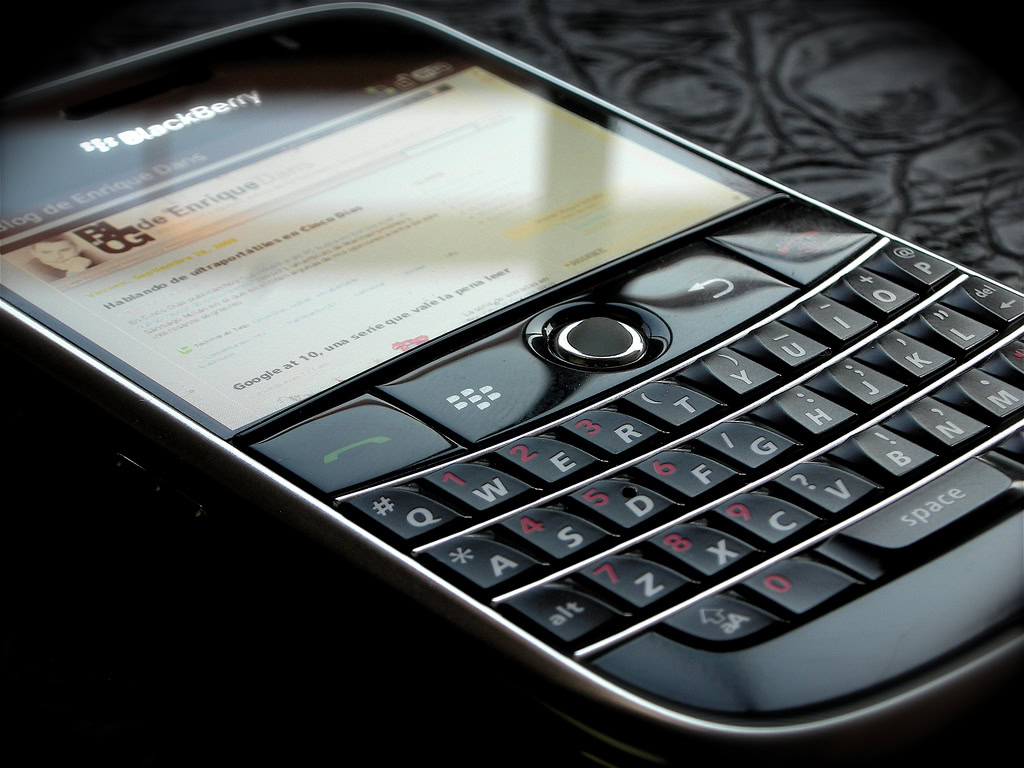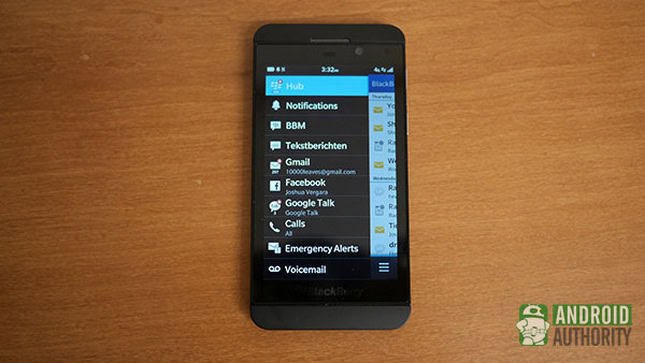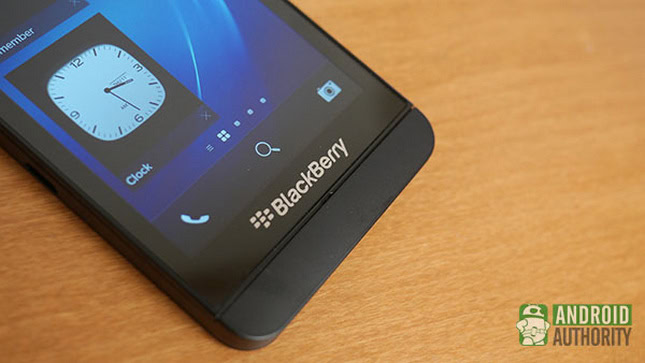Affiliate links on Android Authority may earn us a commission. Learn more.
4 ways BlackBerry can be unique on Android
Published onJune 24, 2015

The case that BlackBerry should give up development of its own platform and switch to using Android is one that never seems to lie down. One of the pioneers of the mobile phone industry, BlackBerry followed in the footsteps of the others – Nokia and Motorola – who helped shape the industry but unlike its peers, BlackBerry refuses to go down without a fight.
Ever since the Apple iPhone came out, BlackBerry has dropped from grace as it failed to provide a touchscreen OS that could actually compete with Apple’s best. Since the launch of its BlackBerry 10 OS in January 2013, BlackBerry has been playing catch up and have turned to both the Amazon Appstore and Google Play Store to sway the perceived app gap.
Despite these moves, many people – myself included – still thought the company should move to Android and despite previously denying any of these claims, BlackBerry CEO John Chen seemingly confirmed a willingness to launch an Android smartphone, as long as any BlackBerry Android smartphone was still secure. Like Nokia, the company will want to be unique in the Android ecosystem so here are four ways that BlackBerry can adopt Android but still stand out amongst the OEM crowd.
1. BlackBerry Hub

The Android Notification Center has improved massively over the past few generations of the platform but the BlackBerry Hub on BlackBerry 10 (BB10) is still one of the best notification areas on any smartphone platform.
The BlackBerry Hub is a one-stop unified notification center that lets you access your email and SMS, see the latest from and update your status on Twitter, Facebook or LinkedIn, connect via BlackBerry Messenger (BBM) or other IM clients and see your upcoming calendar events in one single location.
The key thing that differentiates the Hub over the competition is that it houses each notification individually and also displays them all in a single catch-all screen. The latter is great for seeing the latest updates at a glance while the former lets you dig into as specific type of notification (e.g. the calendar tab to see your schedule and events in detail at a glance).

Notifications from third-party apps are also displayed in the BlackBerry Hub and opening an SDK for the Hub on Android (plus making a version of the Hub available as a downloadable app) could result in a lot of awareness for the brand and its devices.
2. BlackBerry Messenger
BlackBerry Messenger (BBM) is arguably BlackBerry’s biggest asset and the Canadian company opened up its holy-grail to non BlackBerry users in September 2013. Since then, the Android app has been downloaded between 100 million and 500 million times and it has an average rating of 4.3 from over 5.1 million reviews.
The demand for BBM saw BlackBerry delay the rollout when a leaked APK resulted in millions of activations and a server load the company couldn’t have predicted. With an estimated user base of over 70 million users, BBM is a key part of BlackBerry’s offering and developing its Android ROM with BBM in mind could result in mass-appeal and demand amongst customers.
3. BlackBerry Enterprise Servers
A key element to BlackBerry devices for business is the BlackBerry Enterprise Server (more commonly referred to as BES). A few years back, businesses flocked to pay thousands of dollars to add the BES infrastructure to their businesses but since, Android and iOS have taken a large part of BlackBerry’s business customers.
As part of the restructuring of its operations, the Canadian manufacturer reduced the cost of BES and, at least in the UK, scrapped the previous requirement for a monthly subscription for each user. Some larger corporations are still heavily invested in the BES infrastructure and enabling BES to work with BlackBerry’s own Android devices could result in a new lease of life for existing architecture and persuading BlackBerry’s biggest customers to adopt its new non-BlackBerry OS devices.
4. Keyboard, keyboard, keyboard
The points above are all software related but there’s one main reason that BlackBerry didn’t fail, while the likes of Nokia and Motorola have all bitten the bullet; the physical keyboard.

Many people have adopted all-touch devices and an almost-total majority of handsets no longer come with physical keyboards, but there are a small contingent of users who would like to see an Android smartphone with a physical keyboard. We’ve previously seen companies like HTCattempt keyboard-laden devices with the HTCDesire Z and while that product certainly didn’t ignite the demand for keyboards, there’s definitely a case to be had.
BlackBerry Messenger to support Android Wear smartwatches soon
BlackBerry has a long-standing history with physical keyboard devices and while the company somewhat failed with its attempt to create a touchscreen only device that could rival the iPhone, this was mainly due to the software. BlackBerry 10 has evolved dramatically since its first iteration in 2013 and while the software somewhat works for QWERTY devices, the breadth of applications and functionality in Android could be the answer to bringing QWERTY keyboards back from the depths again.
Is Android the answer for Blackberry?
Like Nokia, BlackBerry has its own very loyal fan-base, which want to see the company reclaim its former glory. I personally used to be a major fan of BlackBerry devices and while I’ve made the switch to using touchscreen-only handsets relatively comfortably, an Android device with a QWERTY keyboard would definitely appeal to me.
BlackBerry’s John Chen said he would only consider making an Android device if it were possible to secure the OS and herein lies both the problem and the solution. The problem is that Android is designed to be open-source and customisable by all, and it would be near-impossible for BlackBerry to ensure all apps in the store were secure.
The solution is somewhat simple and two-fold; first, BlackBerry devices would use a custom ROM that’s Google certified and designed to replicate BlackBerry 10 using Android as a base. This would allow BlackBerry to make the entire experience as secure as it liked but apps could be another issue; one solution to this is to work closely with Google to create a specific BlackBerry-certified category where the Canadian manufacturer is allowed to test and approve apps that are offered in that particular category. These could then be specified as the only apps approved for use by BlackBerry and available to download on BlackBerry Android devices.
There’s plenty of reasons for BlackBerry to both adopt Android, and not to, and it remains to be seen whether the company will actually go ahead with these plans. If it were able to produce a secure Android smartphone that offered BlackBerry services and apps, would you buy one? Or is BlackBerry’s time coming to an end? Let us know your views in the comments below!